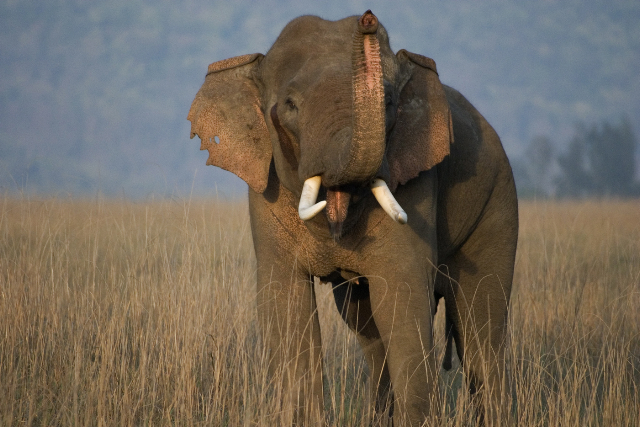‘Tusker habitat in Asia to shrink by 41.8pc’
- 60 per cent of wild Asian elephants are found in India and Nepal
Kathmandu, May 2
A research published in an international journal ‘Diversity and Distribution’ has claimed the habitat of Asian elephant (Elephas maximus) will be reduced by 41.8 per cent by the end of this century.
The research titled ‘Predicting range shifts of Asian elephants under global change’ was published in February by a team of scientists from Nepal, India, Germany, Spain, India Portugal, Denmark, Italy and Myanmar.
The study was conducted on core habitat areas of elephants in Northern India and Nepal. Currently, 60 per cent of the total population of the wild Asian elephants is found in India and Nepal. The number of elephants in Nepal is estimated to be between 125 to 145, while the number is recorded above 12,100 in the north and northeastern regions
of India.
The study predicts that changing climatic condition due to global warming will shift elephant habitats to higher elevations for want of shade and water sources.
The exodus will pose high risk of conflict between tuskers and densely populated human settlements living in and around core elephant habitat areas in Nepal and India.
The study has said elephants will lose their habitat due to combined effects of climate change and pressures induced by the growing human population.
It also pointed out elephants were under constant threat due to increasing urbanisation, transportation, agriculture and other development projects.
Similarly, the research said more than 60 per cent of elephant habitat has been supported by water sources. The report pointed out water sources in core habitat areas were drying up every year.
Under-secretary Bishnu Prasad Shrestha at Department of National Parks and Wildlife Conservation said conservation of elephants was important since its conservation also helped maintain biodiversity. He also said there were certain mega development projects like proposed Nijgad airport that would be hazardous to animals, including elephants. He further said the government should now focus on protecting the natural environment and developing wildlife-friendly development projects.
The government is preparing to build an international airport at Nijgad of Bara district in over 8,045.79 hectare land, which will severely impact the habitat of various animals.
The study suggested, “Conservation and management of elephant populations while developing large-scale projects should include corridors to enable mobility and dispersal of different species to more favourable environments.”






